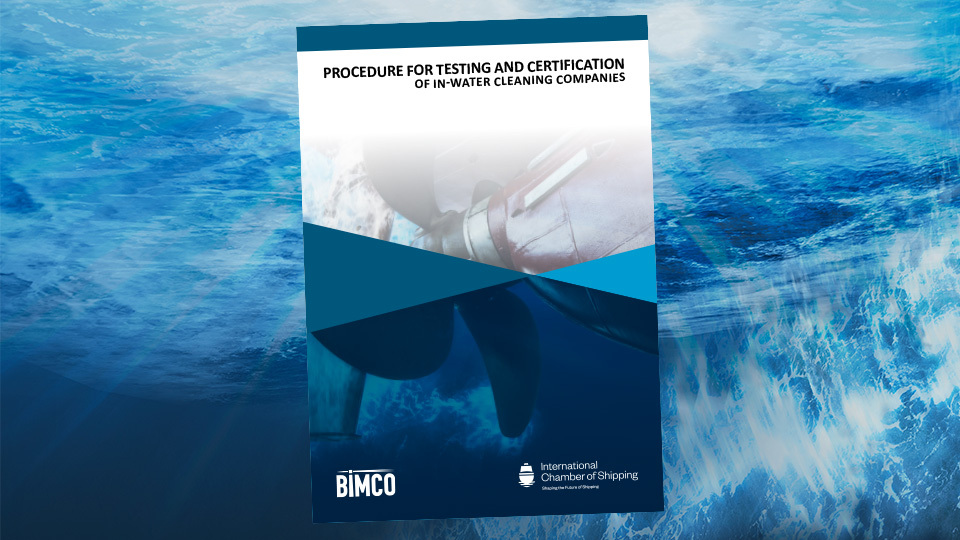Shipping industry united in seeking further progress on CO2 at critical IMO meeting
Overview
Joint press release from BIMCO, International Chamber of Shipping, INTERCARGO, INTERTANKO and World Shipping Council
19 October 2016
In advance of next week’s critical meeting of the Marine Environment Protection Committee (MEPC 70) at the International Maritime Organization (IMO) in London, the global shipping industry has called on IMO Member States to give serious consideration to a joint industry submission regarding the need for further progress on addressing the sector’s CO2 emissions.
The joint industry submission (made by BIMCO, International Chamber of Shipping, INTERCARGO, INTERTANKO and World Shipping Council) represents a unified response from the shipping industry to the Paris Agreement on climate change, which entered into force on 5 October.
The joint industry submission calls on IMO Member States to finalize the adoption of a global CO2 data collection system for international shipping, as a precursor to the consideration of possible next steps to address the sector’s CO2 emissions.
Such steps could then build on the existing IMO mandatory agreement on technical and operational measures to reduce shipping’s CO2, which entered into force worldwide in 2013 – the first global agreement of its kind to be established outside of the United Nations Framework Convention on Climate Change (UNFCCC).
In particular, the industry associations will be requesting MEPC 70 to agree to develop a roadmap which would include a timeline for the completion of this important work, which the submission describes – although the industry is flexible about the precise terminology – as determining a ‘fair share contribution’ towards reducing the world’s total CO2 emissions, of which international shipping is currently responsible for about 2.2%.
The international industry associations are united in emphasizing that it is of the utmost importance that MEPC 70 makes significant progress on agreeing to develop a timeline for consideration of next steps, in order that IMO can make a positive report to the next UNFCCC Conference of Parties (COP 22) which meets in Marrakesh from 7 November.
The industry’s submission to MEPC 70 is intended to demonstrate that shipping is responding responsibly to global climate change, and that IMO is the only competent authority for addressing shipping’s CO2 emissions.
End
[i] The joint industry submission to MEPC 70 which meets from 24-28 October can be downloaded here.
[ii] The 2012 amendments to Annex VI of the MARPOL Convention entered into force in 2013. These require all new ships to be constructed in accordance with an Energy Efficiency Design Index (EEDI) which requires new build ships to be progressively more efficient within an agreed timetable, with most ships built from 2025 required to be at least 30% more efficient that those delivered in the 2000s. The amendments to MARPOL also require all existing ships in the world fleet to utilize Ship Energy Efficiency Management Plans (SEEMP) in order to deliver meaningful CO2 reductions through technical and operational measures.
Feedback or a question about this information?
VPS Bunker Alerts
Veritas Petroleum Services (VPS) publish regular Bunker Alerts based entirely on fuel samples and have kindly permitted BIMCO’s Members to access this information.
The Bunker Alerts are not intended to be an evaluation of overall bunker quality in the port or area concerned, but usually highlight a specific parameter within the fuel which has raised a quality issue.
Latest ice reports for members
Latest piracy reports
Latest industry releasable threats
ELSEWHERE ON BIMCO
Contracts & Clauses
All of BIMCO's most widely used contracts and clauses as well as advice on managing charters and business partners.
Learn about your cargo
For general guidance and information on cargo-related queries.
BIMCO Publications
Want to buy or download a BIMCO publication? Use the link to get access to the ballast water management guide, the ship master’s security manual and many other publications.
About a new business partner
We can help members check new business partners. We also help to recover millions of USD (undisputed) funds every year.




